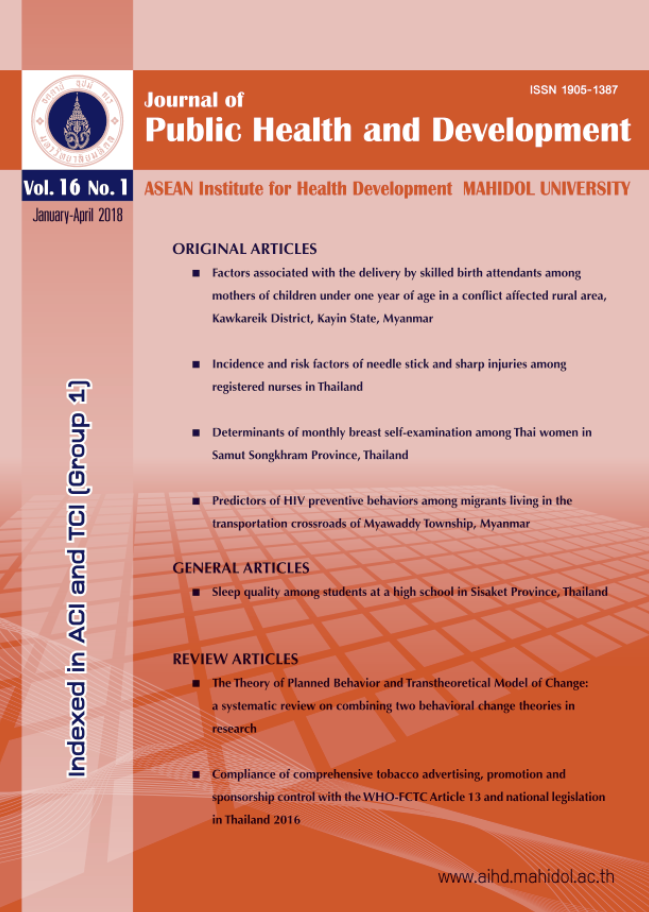Determinants of preventive behaviour against dengue haemorrhagic fever among caregivers of children in Magway Township, Myanmar
Main Article Content
Abstract
This cross-sectional study aims to determine factors associated with preventive behaviour of dengue haemorrhagic fever (DHF) among caregivers in Magway Township, Myanmar. 318 caregivers of 1-4 years old children were randomly selected by multistage cluster sampling. A structured questionnaire based on the health belief model was used in a face-to-face interview with caregivers at their houses by the researcher and trained research assistants. The results of this study showed that about one quarter of the caregivers were in a good level of preventive behavior against DHF. The household income (Adj OR=2.35, 95% CI=1.04-5.31), knowledge on DHF (Adj OR=12.99, 95% CI=6.65-25.39), perceived susceptibility (Adj OR=3.13, 95% CI=1.39-7.06), perceived barriers (Adj OR=2.70, 95% CI=1.22-5.93) and self-efficacy (Adj OR=5.48, 95% CI=1.47-20.39) were the significant predictors of with DHF preventive behaviour among caregivers. In conclusion, this study indicated that high income, good knowledge, high perceived susceptibility, low perceived barriers and high self-efficacy among caregivers were required to have good preventive behaviour to prevent their children from DHF. Therefore, adequate income generation, health education, and reduction of barriers should be promoted to increase the high level of the DHF preventive behaviour among caregivers of children.


